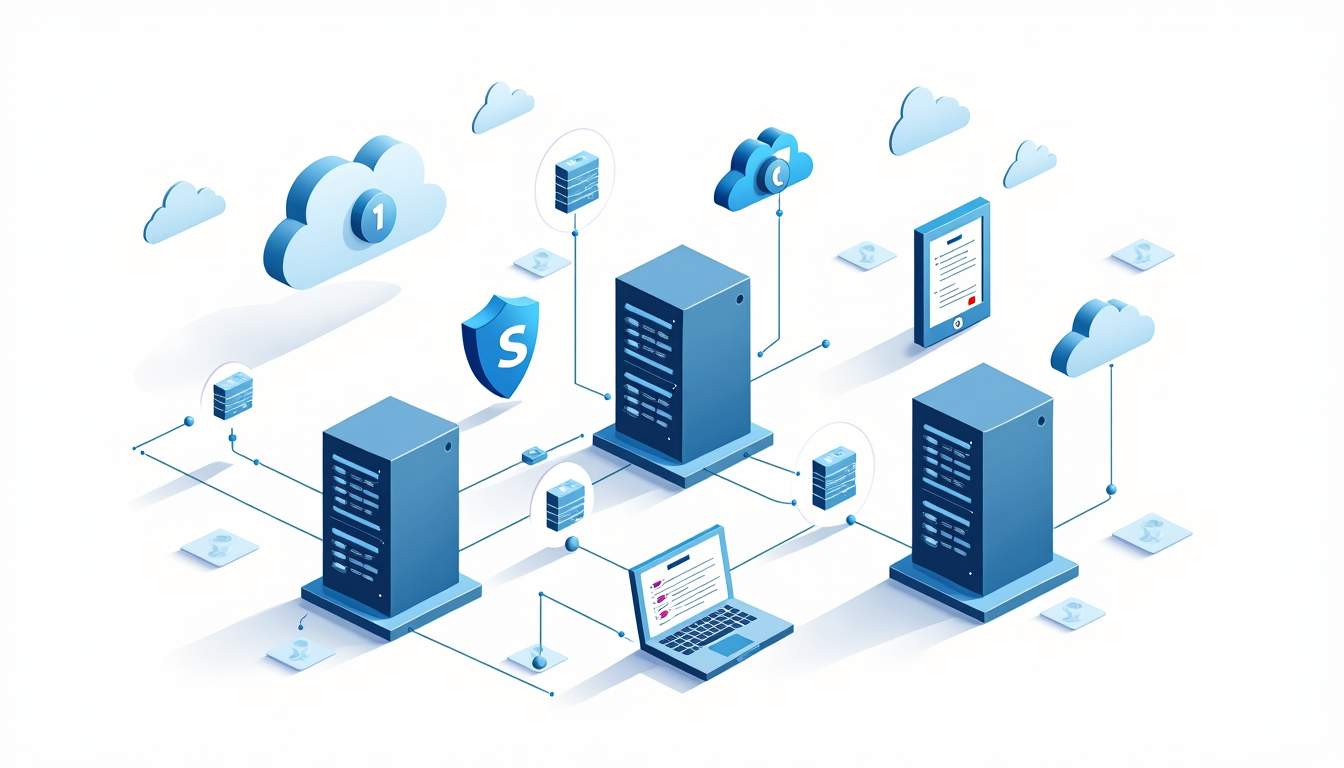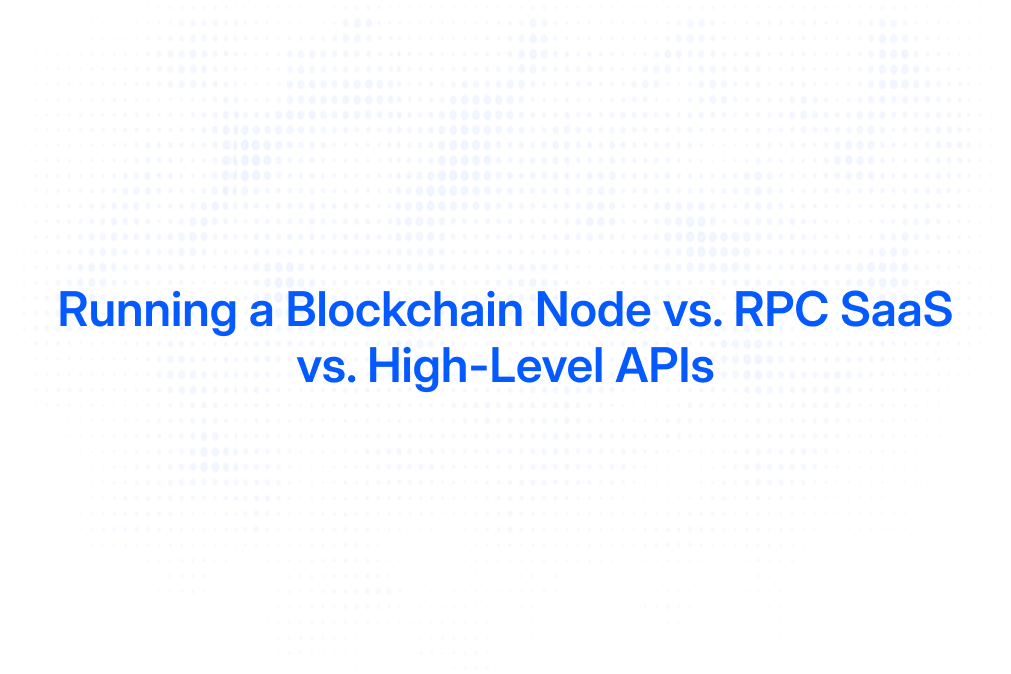Best Practices for Logging RPC Requests Across Providers
Remote Procedure Call (RPC) technology is the backbone of blockchain infrastructure, enabling decentralized applications (dApps) and Web3 services to communicate efficiently with blockchain nodes. As blockchain ecosystems grow more complex, developers increasingly rely on multiple RPC providers to ensure reliability, reduce latency, and optimize costs. However, managing and logging RPC requests across these diverse providers presents unique challenges that require strategic approaches to maintain performance, security, and observability.
This article explores best practices for logging RPC requests across providers, highlighting how proper logging enhances debugging, monitoring, and cost management in modern Web3 applications.
Understanding the Importance of RPC Request Logging
Before diving into best practices, it is essential to understand why logging RPC requests is critical in blockchain development. RPC requests serve as the communication bridge between dApps and blockchain nodes, carrying vital data about transactions, state queries, and smart contract interactions.
Effective logging of these requests helps developers:
- Monitor reliability and uptime: Track RPC failovers and outages to maintain uninterrupted service.
- Diagnose issues quickly: Identify bottlenecks, errors, or latency spikes in real time.
- Optimize costs: Analyze usage patterns to select the most cost-effective RPC providers or routing strategies.
- Ensure security and compliance: Detect suspicious activity or unauthorized access attempts.
Given the rise of multi-provider RPC routing and auto-routing solutions, logging becomes even more crucial to maintain visibility across a distributed infrastructure.
Moreover, comprehensive logging can facilitate better collaboration among development teams. By maintaining detailed logs, teams can share insights and findings more effectively, leading to improved troubleshooting and faster resolution of issues. This collaborative approach not only enhances the overall quality of the dApp but also fosters a culture of transparency and accountability within the team. Additionally, as blockchain technology continues to evolve, the ability to analyze historical RPC request data can provide valuable insights into user behavior and application performance, guiding future development efforts and feature enhancements.
Furthermore, the integration of advanced logging tools can automate the process of data collection and analysis. These tools can provide real-time dashboards and alerts, allowing developers to proactively address potential issues before they escalate into significant problems. By leveraging such technology, teams can not only improve their operational efficiency but also enhance the user experience by ensuring that their dApps remain responsive and reliable. As the blockchain ecosystem grows increasingly complex, the importance of robust RPC request logging cannot be overstated; it is a foundational element that supports the scalability and sustainability of decentralized applications.
Challenges of Logging RPC Requests Across Multiple Providers
Using multiple RPC providers simultaneously—often through an RPC aggregator or auto-routing service—introduces complexity in logging. Some of the key challenges include:
1. Data Consistency and Format Standardization
Different providers may log request and response data in varying formats, making it difficult to aggregate and analyze logs uniformly. Without standardization, correlating events or tracing requests end-to-end becomes cumbersome.
2. Volume and Performance Overhead
Blockchain applications can generate millions of RPC calls daily. Logging every request in detail risks overwhelming storage systems and increasing latency. Balancing granularity with performance impact is critical.
3. Multi-Region and Multi-Cloud Complexity
With providers distributed across regions and clouds—such as Google MCP-enabled multi-cloud RPC routing—logs are scattered across different systems. Centralizing logs while respecting data sovereignty and latency constraints requires thoughtful architecture.
4. Security and Privacy Concerns
RPC logs may contain sensitive information, including wallet addresses and transaction data. Ensuring logs are securely stored and access-controlled is paramount to prevent leaks or misuse.
Best Practices for Effective RPC Request Logging
To overcome these challenges and harness the full benefits of RPC logging, developers should adopt the following best practices.
1. Implement Structured and Standardized Logging
Use a consistent, structured logging format such as JSON for all RPC requests and responses across providers. This facilitates easier parsing, searching, and correlation of logs regardless of the source.
Include key metadata fields such as:
timestamp– precise time of the requestprovider– RPC provider name or endpointmethod– RPC method called (e.g.,eth_getBalance)requestId– unique identifier for tracinglatencyMs– response time in millisecondsstatus– success or error code
Standardization enables integration with centralized log management tools and simplifies troubleshooting.
2. Use Sampling and Aggregation to Manage Log Volume
Logging every RPC request in full detail can be impractical. Instead, implement sampling strategies where only a subset of requests are logged in detail, while summary statistics are collected for all requests.
Aggregate metrics such as average latency, error rates, and throughput per provider can be invaluable for monitoring without overwhelming storage.
3. Centralize Logs with a Unified Logging Platform
Collect logs from all RPC providers into a centralized system such as Elasticsearch, Splunk, or a cloud-native observability platform. This approach allows for holistic visibility, cross-provider correlation, and faster incident response.
For multi-region and multi-cloud setups, ensure your logging platform supports geo-distributed ingestion with low latency and compliance features.
4. Correlate Logs with RPC Auto-Routing and Load Balancing
When using RPC auto-routing or multi-provider load balancing, it is essential to log routing decisions alongside request details. This helps in:
- Identifying which provider handled each request
- Analyzing provider performance and failover events
- Optimizing routing logic based on real-world data
Include routing metadata such as chosen provider endpoint, fallback attempts, and routing latency in your logs.
5. Monitor for Anomalies and Failures Proactively
Set up automated alerts based on log data to detect anomalies such as:
- Sudden spikes in RPC error rates
- Increased latency or timeouts
- Unexpected provider failovers
Proactive monitoring allows teams to address issues before they impact end users, preserving application reliability.
6. Secure Logs with Encryption and Access Controls
Given the sensitive nature of blockchain data, encrypt logs both in transit and at rest. Implement strict access controls and audit logging to ensure only authorized personnel can view or modify logs.
Consider anonymizing or redacting sensitive fields where appropriate to comply with privacy regulations.
Leveraging RPC Logging for Cost Optimization and Reliability
Beyond debugging and monitoring, RPC request logs can drive strategic improvements in blockchain infrastructure.
Cost Optimization
By analyzing detailed usage logs across providers, teams can identify the most cost-effective RPC endpoints and adjust routing policies accordingly. For example, startups have reported reducing RPC costs by up to 40% through intelligent auto-routing and provider selection based on log-driven insights.
Improving Reliability
Logs provide visibility into failover events and provider outages. By correlating these events with application performance, developers can fine-tune multi-provider routing strategies to minimize downtime and latency.
Multi-cloud and multi-region RPC routing, supported by Google’s Multi-Cloud Proxy (MCP) technology, further enhances reliability by distributing requests geographically and across cloud providers. Logging plays a vital role in validating these benefits in production.
Conclusion
Effective logging of RPC requests across multiple providers is a foundational practice for building resilient, scalable, and cost-efficient blockchain applications. By standardizing log formats, centralizing data, correlating routing decisions, and securing sensitive information, developers can gain deep insights into their RPC infrastructure.
These insights empower teams to proactively monitor performance, quickly resolve issues, and optimize costs—ensuring that Web3 applications deliver seamless user experiences even as blockchain ecosystems grow in complexity.
Embracing these best practices will position blockchain projects to thrive in the evolving landscape of multi-provider RPC routing and next-generation infrastructure solutions.
As you seek to implement these best practices for logging RPC requests across providers, consider the power of Uniblock to streamline your Web3 infrastructure. With Uniblock, you can effortlessly connect to blockchain data through a single API endpoint that intelligently auto-routes traffic, ensuring maximum uptime, minimal latency, and cost savings. Join the ranks of over 2,000 developers across more than 100 chains who trust Uniblock to eliminate vendor lock-in and scale their projects with ease. Start building with Uniblock today and take the first step towards seamless decentralized infrastructure management.
.svg)


.png)



